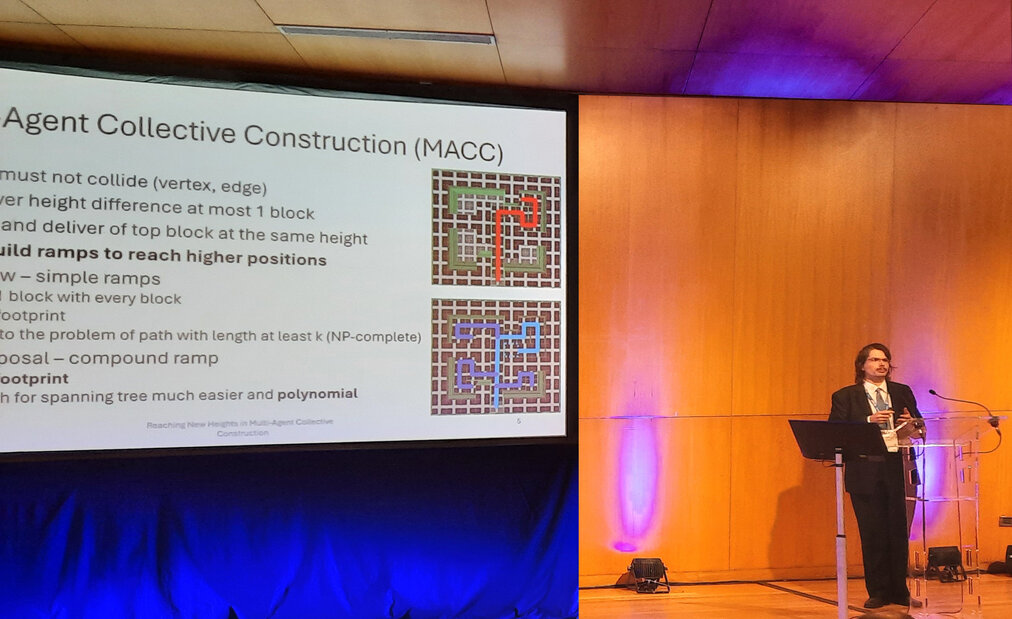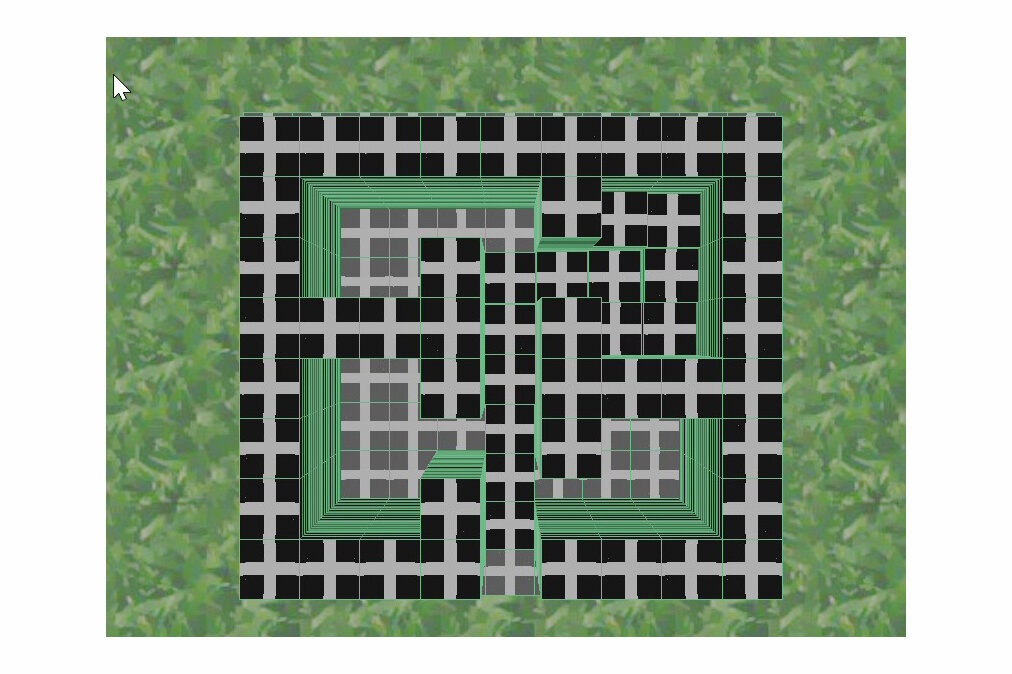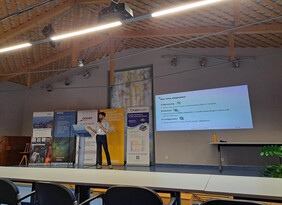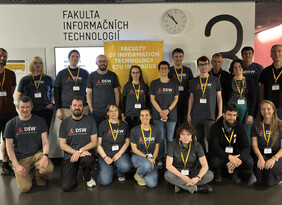
The scientific paper by PhD student Ing. Martin Rameš from the Faculty of Information Technology at Czech Technical University in Prague (FIT CTU) was successfully selected for the prestigious main program of the European Conference on Artificial Intelligence 2024 (ECAI). ECAI is the leading European conference focused on artificial intelligence, known for its rigorous peer-review process, where only around 20% of submitted papers are accepted. The 50th anniversary edition of the conference took place in Santiago de Compostela, Spain.
The presented scientific article focuses on three-dimensional collective construction, where a group of agents aims to build a given structure from blocks. The project builds upon the TERMES system, developed at Harvard University. Each agent is a small, simple robot with limited reach and can carry only one block at a time. However, by using temporary ramps, functioning as scaffolding, the group of robots is capable of constructing much larger structures. The article introduces a new concept of a composite ramp and presents the ReRamp algorithm, which applies this principle and expands the range of constructions and buildings for which solutions can be found in polynomial, or reasonable, time. The algorithm's capabilities are demonstrated through the example of a plan to build the walls of the first floor of a family house. Martin Rameš worked on the article under the supervision of Prof. RNDr. Pavel Surynek, Ph.D., the advisor of his doctoral thesis and the head of the Robotics Agents Laboratory at the Faculty of Information Technology, Czech Technical University (FIT CTU).
"I am interested in artificial intelligence, but also in its interdisciplinary connection with other fields, such as automation in construction," says Martin Rameš, continuing, "I see huge potential in this – how to create technologies that not only think independently but also build practically. The possibilities of collective robotics and algorithms that can effectively solve complex tasks could completely transform the way buildings are designed and constructed. The connection between technologies and construction processes is fascinating to me."
Martin Rameš completed both his bachelor's and master's studies at FIT CTU and is now continuing his doctoral studies under the supervision of Prof. Pavel Surynek. His dissertation focuses on automatic planning for collective construction. In general, this involves analyzing the problem of collective construction and improving existing algorithms or designing new ones to overcome some limitations of current state-of-the-art approaches – the most advanced and high-quality available solutions in the field.
"How did we come up with the idea to work on this topic? I've actually been thinking about this topic for several years, but due to other research and commitments, I didn't have the space to fully dedicate myself to it. I'm glad that Martin Rameš became passionate about it and chose it as the topic of his doctoral research. I believe that he is also happy and sees that he has chosen a promising and interesting topic that advances his scientific work and brings him success," says Prof. Pavel Surynek.
After the successful presentation of the ReRamp algorithm, Martin Rameš plans to continue developing this research. The possibilities of the composite ramp concept presented in the article for ECAI are far from exhausted. The new concept and its first application were primarily presented. Now, Martin Rameš is focusing on more advanced research into the application of the composite ramp concept to the problem of collective construction and preparing another scientific paper.




